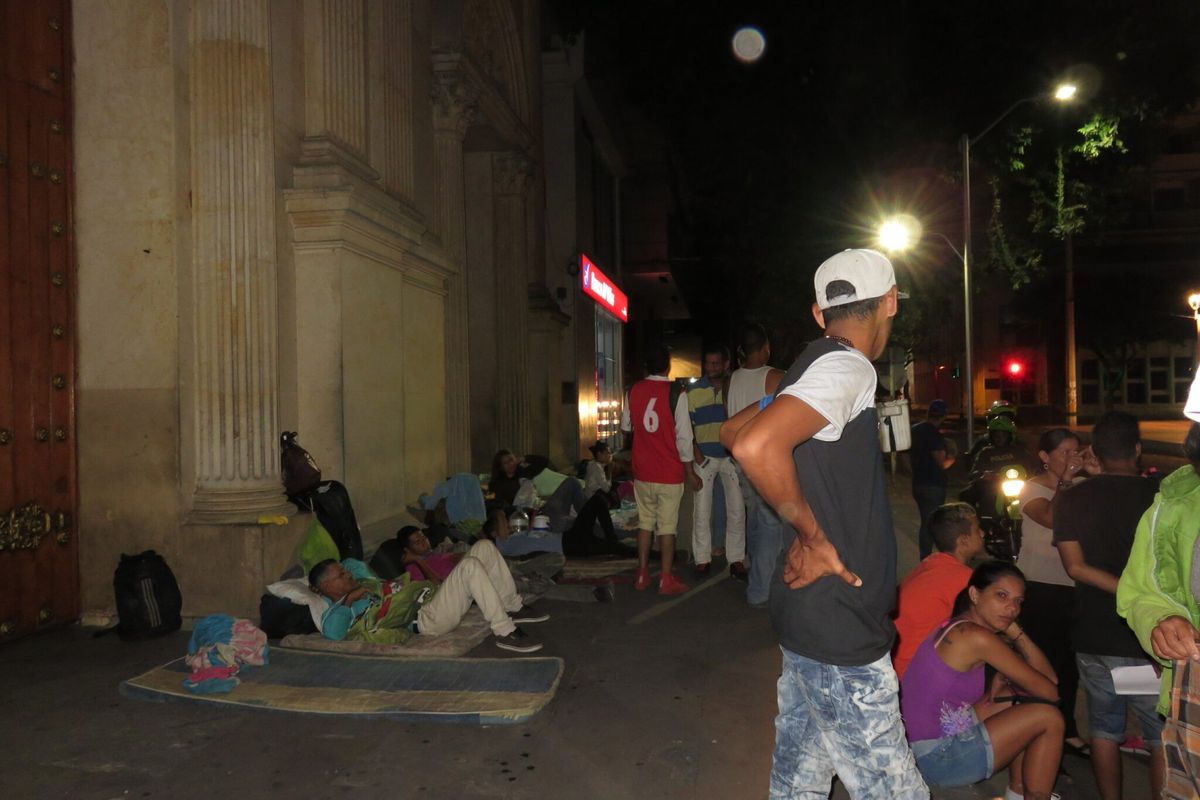Two assumptions about transnational crime disrupt the design of effective security policies worldwide: Assuming that corruption is mainly an economic issue in which private agents bribe officials, and assuming that only pure and “full time” criminals participate and sustain organized crime.
To interpret corruption as an economic problem is to forget the human costs. When drug traffickers bribe a town’s mayor or police chief, it allows for extortions, kidnappings, and mass murders. Similarly, when a firm bribes the director of a public hospital to obtain a contract, the best medicine and treatments are not provided. Both situations consist of bribes—the focus for law enforcement and prosecutors—but the social and human consequences are beyond the economic or corporative aspects that are usually analyzed.
These are not hypothetical situations but common tragedies across most of Latin America, Africa, and East Europe. This year, more than 10 people died in Guatemala after receiving deficient treatment for kidney diseases. Independent investigations revealed that the firm in charge of providing the treatments obtained the contract through bribes. In a more sophisticated criminal situation, between 2002 and 2006, the head of the national intelligence agency, mayors, governors, and nearly 40 percent of the national legislators in Colombia established agreements with narco-paramilitary commanders of the United Self-Defense Forces of Colombia (Autodefensas Unidas de Colombia). Although this happened almost a decade ago, the resulting laws and policies have had lasting impacts.
The other false assumption—that only “full time” criminals are involved in organized crime—ignores the favors and resources provided by “legal” or “grey” actors. Usually only “full-time” criminals are investigated, prosecuted, and sanctioned, while powerful grey agents provide money, information, and political favors that perpetuate global criminal networks.
These grey agents enable criminal structures to maintain resilience amidst the constant captures of, and changes in, leaders. The concept “organized crime” usually relates to hierarchical, pyramidal, and centralized structures, in which a single criminal leader makes decisions isolated from lawful and formal institutions. This hyper-simplified image, however, does not reflect the reality of current transnational criminal networks, and thus, overcoming it is critical for effectively understanding and tackling crime.
In general, traditional concepts about corruption and organized crime are increasingly useless for understanding the complex criminal structures in which bankers, attorneys, corporations, politicians, and civil leaders are key players operating through formal and “legal” interactions. For instance, when the aforementioned criminal infiltration in Colombia was revealed, the legislators involved were protected by immunity. The traditional definitions of “corruption” and “organized crime” in the Colombian Penal Code were useless for understanding, investigating, and sanctioning the agreements in the Supreme Court.
After the Colombian government adopted a transitional justice jurisdiction in 2005, the United Self-Defense Forces of Colombia began demobilizing. As a result, former narco-paramilitary commanders began providing huge amounts of information to the Attorney General Office. The volumes of information describing complex criminal structures included thousands of names and interactions, but most attorneys lacked the human and technical conditions for analyzing and understanding it. The solution required techniques for modeling, mapping, analyzing, and visualizing the complexity of crime.
As a result of this challenge, Vortex Foundation developed protocols of analysis to give sense to the huge amounts of qualitative data accumulated in investigations. It became possible to “translate” the information provided by former narco-paramilitary commanders into visual models that informed attorneys and judges about the financial, political, and violent sub-structures of a single criminal network and reveal the roles and actions of key players.
Similar analysis has recently been expanded and applied to understand how criminal networks manipulate formal and legal institutions across various markets and regions, from human trafficking networks in Bulgaria to rhino horn trafficking networks in South Africa. But this is not only a developing country problem. Due to corruption or the lack of technical capacities, especially at the local level, even countries with strong enforcement agencies tend to omit the critical participation of grey agents. In the United States, local courts still focus their attention on the obvious “full-time” criminals, omitting the action of powerful agents, who, for example, facilitate schemes of money laundering or hydrocarbon condensate trafficking.
It is critical to understand the complex grey zone of agents and interactions that operate across lawful and unlawful sectors of society through data mining techniques and computational tools. This begins by confronting the hyper-simplified misconceptions of corruption and organized crime. A new mindset transformed Colombia, and it will also allow journalists, investigators, prosecutors, judges, and scholars to understand the complexity of highly connected, decentralized, and transnational criminal structures currently shaping various states worldwide.










